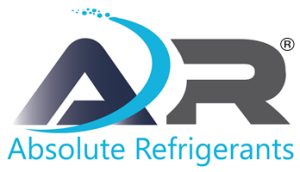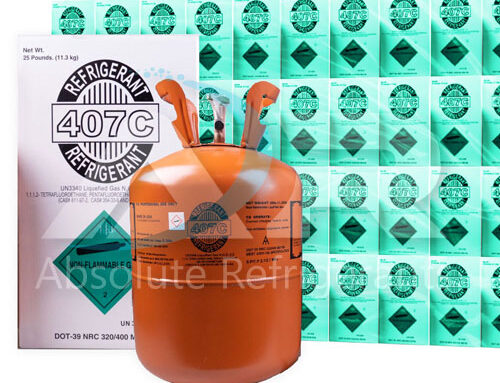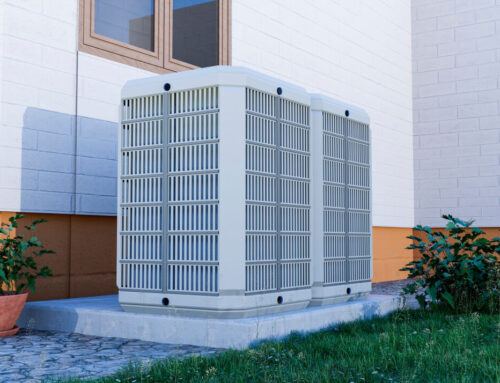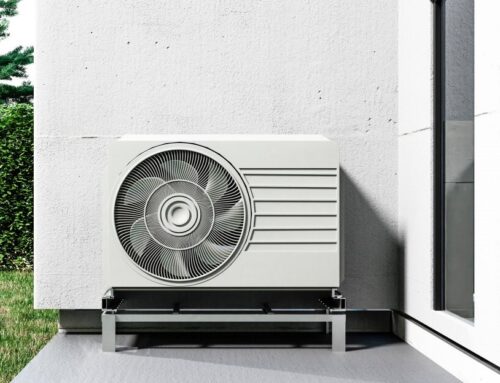What Factors Should You Consider When Choosing a Refrigerant?- Absolute Refigerant

Each application has a unique set of requirements, so there is no universally applicable refrigerant solution. It is essential to concentrate on choosing the proper refrigerants for each application based on evaluating the whole. Absolute Refrigerants considers it essential to thoroughly evaluate four fundamental criteria in this entire assessment: safety, environmental impact, energy efficiency, and cost-effectiveness.
Safety
During the entirety of the equipment’s existence, a refrigerant must be safe to use. Recycling, recovery, servicing, use, installation, storage, and transportation are all under this category.
This implies that for each kind of application, potential risks like toxicity or flammability traits and the chance of human mistakes must be evaluated. While non-flammable and low-toxicity refrigerants may improve safety, they might not be the best choice for the environment.
Also, while some refrigerants may be safe enough for one type of equipment, they may not be for others. For this reason, comprehensive risk analyses are required for each application.
Environmental Impact
The environmental impact of a refrigerant is a key factor to be taken into account. The CO2 equivalent of a refrigerant, which is the amount of refrigerant multiplied by its global warming potential (GWP*2), incorporates the refrigerant’s ozone-depleting potential (ODP*1) and possible global warming impact.
Energy Savings
Of course, you want to find a refrigerant that is energy efficient, which will help save on energy costs. If your compressor has the right refrigerant in it, it has a better chance of operating efficiently, saving the owner on high-cost energy bills.
Cost-Effectiveness
You’ll want to ask questions such as, is the refrigerant, for instance, simple and affordable to install and maintain? Does it help to lower overall system maintenance and operation costs? Is refrigerant recycling practical and economical? These things should be taken into account when choosing cost-effective refrigerants.
Type of Compressor
Compressors are frequently required to work under multiple conditions for refrigeration applications. While a single-stage compressor that runs at full capacity during the “on” cycle may be preferable for light-duty applications, a two-stage or variable-speed compressor may be the best choice for refrigeration applications with varied load situations.
The compressor can also be a key factor in choosing a refrigerant because different compressor models are made to work with different refrigerants. The label or specifications of the compressor can be checked to determine the necessary refrigerant. Furthermore, details regarding the refrigerants permitted for use in the United States are available from the EPA’s Significant New Alternatives Policy (SNAP).
What Does Your Manufacturer Recommend?
If you currently have a system, you’ll need to note what type of refrigerant the manufacturer recommends. If your system is old, it might state an old type, which can be replaced with something a little more modern, economical, and better for the environment. Your HVAC contractor should be able to help you with this. However, if you are doing it on your own, be sure that you take the time to fully understand the different refrigerants. Some will be able to be mixed with others, while other options will need to be completely drained and replaced if you do have an older system. Most new systems will come with refrigerants that can be easily topped off when the system gets too low.
Call Absolute Refrigerants Today
Absolute Refrigerants offers a wide selection of refrigerant types to meet the needs of our customers. We take great pride in helping our clients determine which type of refrigerant is best for their situation. If you have questions or concerns, give us a call at 480-625-4214. We would be happy to discuss this.
There are many things that you should take into consideration regarding refrigerants. Whether it is the type that a manufacturer recommended, environmental impact, safety, or energy savings, we are here to help.






